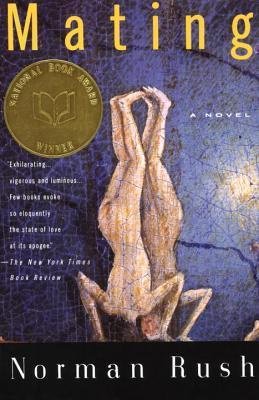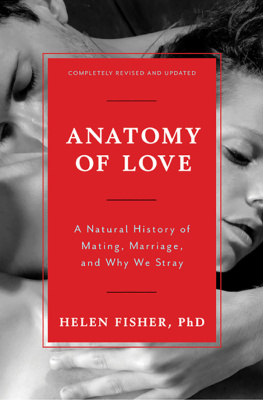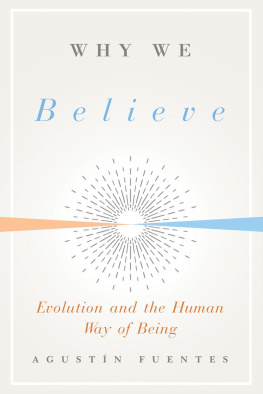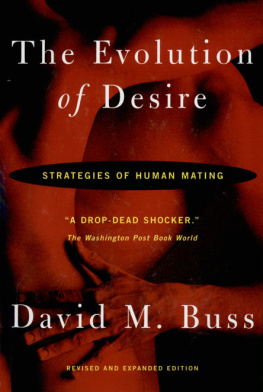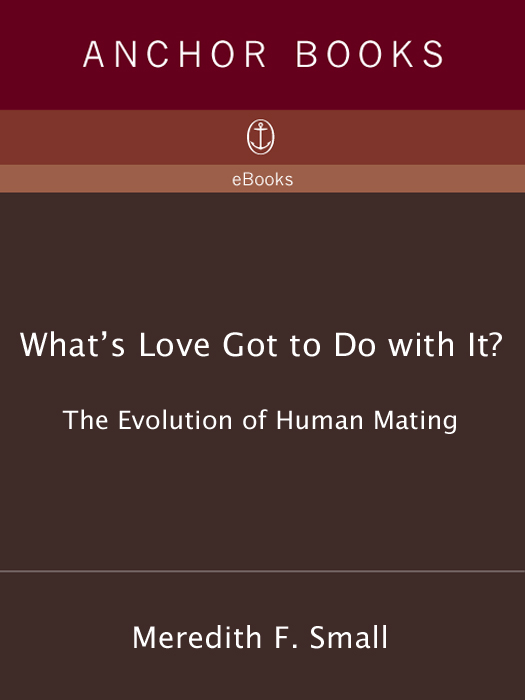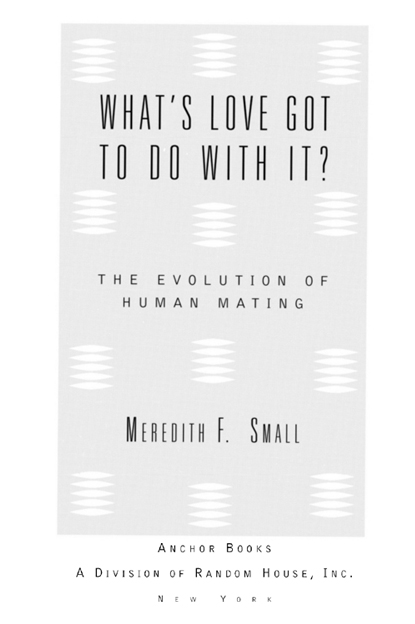MEREDITH F. SMALL
WHATS LOVE GOT TO DO WITH IT?
Meredith F. Small is a professor of anthropology at Cornell University and the author of Our Babies, Ourselves; Kids; and Female Choices. She writes frequently for Natural History Magazine, Discover, Scientific American, and is a commentator for National Public Radios All Things Considered. She lives in Ithaca, New York.
FIRST ANCHOR BOOKS TRADE PAPERBACK EDITION, JULY 1996
Copyright 1995 by Meredith F. Small
All rights reserved under International and Pan-American Copyright Conventions. Published in the United States by Anchor Books, a division of Random House, Inc., New York, and simultaneously in Canada by Random House of Canada Limited, Toronto. Originally published in hardcover in the United States by Anchor Books, a division of Random House, Inc., New York, in 1995.
A NCHOR B OOKS and colophon are registered trademarks of Random House, Inc.
The Library of Congress has cataloged the Anchor hardcover edition of this work as follows:
Small, Meredith F.
Whats love got to do with it? : the evolution of human mating / by Meredith F. Small.
p. cm.
Includes bibliographical references (p.)
1. Human evolution. 2. Sex (Biology)Evolution. 3. Mate selectionPhysiological aspects. 4. Social evolution. I. Title.
GN281.4.S63 1995
95-1359
575.5dc20
eISBN: 978-0-307-76550-5
www.anchorbooks.com
v3.1
FOR TIM,
BECAUSE LOVE HAS SOMETHING
TO DO WITH IT.
Modern men and women are obsessed with the sexual; it is the only realm of primordial adventure still left to most of us.
EDWARD ABBEY
Contents
CHAPTER ONE
T HE S EXUAL A NIMAL
CHAPTER TWO
T HE E SSENTIAL U RGE
CHAPTER THREE
T HE F EMALE OF THE S PECIES
CHAPTER FOUR
M EN AT W ORK
CHAPTER FIVE
M ATE C HOICE
CHAPTER SIX
T HE N ATURAL H ISTORY OF H OMOSEXUALITY
CHAPTER SEVEN
S EX B EYOND THE T WENTY-FIRST C ENTURY
Introduction
Last Thanksgiving, I was invited to dinner at a friends house. I sat next to another guest, a physician. Having heard I was an anthropologist, he turned toward me and politely asked about my research. I was undecided on how to answershould I keep my mouth shut about my years of studying monkey mating behavior and my current research project on human ovulation, or should I throw my research topics out on the table along with the mashed potatoes and the stuffing? I decided my dinner companion was an adult, and as a doctor, he certainly should know enough about human anatomy not to be put off. So I launched into an explanation. At the moment, I said, Im working on ovulationwhether or not women, or their male partners, think they know when they ovulate. He put down his fork. I knew he was either going to excuse himself and turn to the guest on his other side, or plunge deeper into discussion with me. It was the latter. And what will this information tell us? Why is it anthropology? he asked. In answer, I explained how some anthropologists maintain that unlike the ovulation of many other primates, such as chimpanzees which have large pink swellings that announce their fertility, ovulation in human females is more concealed. This fact might have had a significant effect on the evolution of the human mating system over the past millions of years. A man who was concerned about paternity would have to guard his partner all the time to make sure she wasnt mating and conceiving with someone else. This might be one reason for an extended human pair bond. Or a woman could manipulate a man into having sex when she wasnt fertile, thereby depleting sperm supplies that he might use to impregnate other women. We chatted on, discussing the possible roles of men and women in shaping how we mate today. Meanwhile, the word ovulation seemed to float down the length of the dinner table, tap each guest on the shoulder, and land right on the half-carved turkey. I suddenly realized the entire table had grown silent. All the guests were turned in my direction, listening to this monologue on the mating behavior of our human ancestors. As I saw it, the only thing I could do at that point was open the topic up for discussion.
Do you know when you ovulate? I asked my hostess. She replied, Why, yes, of course. Each woman in turn said yes or no, or that she hadnt thought much about it before. One young woman wasnt sure exactly what ovulation was. When we explained, she thought that perhaps she felt something halfway through her cycle that might indicate her ovulation. I didnt have the courage to ask the male guests if they knew when their partners ovulated, but the question was on my mind. As an anthropologist, Im primarily interested in the evolutionary history of this question, but Im also curious how this biological event might subtly affect current relationships. I wanted very much to ask the couples at the table if knowing when the female partner ovulated had ever altered their patterns of sexual intercourse in any way over the years. Did they use knowledge of ovulation to avoid pregnancy, or perhaps achieve it? Could I bring this up in polite conversation over pumpkin pie? At that point, the decision was taken out of my hands when the subject was gracefully changed by my host, who took a quick glance at his oldest son and commented, If women really knew when they ovulated, some people might not be sitting around this table.
The events of the evening illustrate two points to me. First, most people dont always know how their sexual biology works. Our knowledge of how babies are made is mostly connected to methods of contraceptionand many of us dont even know how that works either. And sex, the process by which we make those babies, is just as mysterious. Im sure most of the guests that evening wouldnt have been able to explain why they wanted to have sex at all, or why they were sexually attracted to one person rather than another. Second, that evening once again showed me that everyone is fascinated by anything having to do with sex and reproduction. With the simple utterance of the word ovulation, for example, I was able to derail an audience of twelve hungry people who should have been concentrating on the dark-meat light-meat decision into thinking about their own reproductive biology. And everybody had something to say. I cant help but wonder what the reaction would have been had I brought up the topic of orgasm.
This book is about human mating, or sex, because were all captivated by the subjectand yet totally confused about its origins. By definition, the book also touches on the human reproductive process, because making babies is the ultimate biological consequence of sex for humans, as it is in any sexually reproducing species. But since our particular species is not just motivated by inner biological drives, I have to look at sex as part of our culture as well.
Its odd that we know much about the world around us, and so little about our sexuality and our reproductive biology. How can we as a species guide our lives, choose lifelong partners, make important decisions about having children, or be responsible adults if we dont comprehend our basic sexual biology? To know ourselves sexually, it would seem, is to understand one of the most compelling feelings in lifethe drive to copulate. More confusing yet is the fact that we are culturally drowning in a topic that we barely comprehend. In Western society, sex is thrown into our sensory field at every turnphotographs of young men in underwear are spread across several magazine pages; long-legged models lounge on shiny new automobiles to entice us to spend our hard-earned wages; sexually explicit magazines fill the newsstands to catch our passing eye; stand-up comedians know they can always get a laugh with an off-color line; and television scripts spike their dialogue with sexual innuendo to keep us from heading for the fridge. Our modern media, some suggest, is synonymous with sex. In a sense, the media is only taking advantage of the conflicted place of sexuality in our culture and our daily lives.


